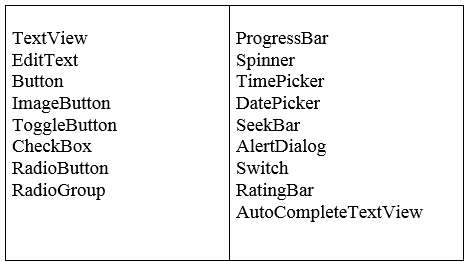Android SDK :
The Android SDK (software development kit) is a set of development tools used to develop applications
for Android platform. The Android SDK includes the following:
Required libraries
Debugger
An emulator
Proguard
Android Debug Bridge (Adb)
Relevant documentation for the Android application program interfaces (APIs)
Sample source code
Tutorials for the Android OS
Every time Google releases a new version of Android, a corresponding SDK is also released. To be able to
write programs with the latest features, developers must download and install each version’s SDK for the particular phone.
The development platforms that are compatible with SDK include operating systems like Windows (XP or later), Linux (any recent Linux distribution) and Mac OS X (10.4.9 or later).
The components of Android SDK can be downloaded separately. Third party add-ons are also available for download.
Although the SDK can be used to write Android programs in the command prompt, the most common method is by using an integrated development environment (IDE). The recommended IDE is Eclipse with the Android Development Tools (ADT) plug-in. However, other IDEs, such as NetBeans or IntelliJ, will also work. Most of these IDEs provide a graphical interface enabling developers to perform development tasks faster. Since Android applications are written in Java code, a user should have the Java Development Kit (JDK) installed.




0 Comments